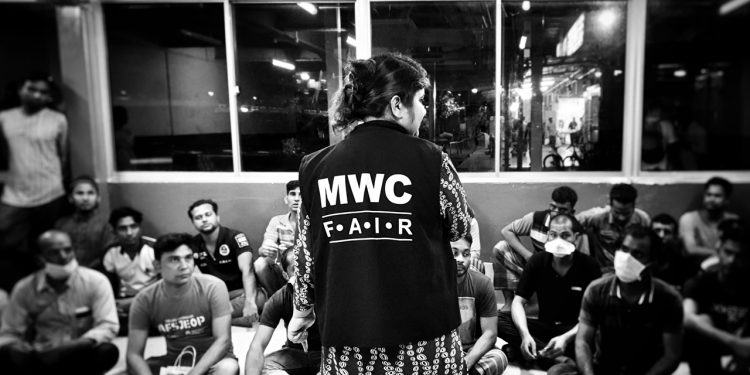Since late January this year, almost everything that I have written as a journalist seems to revolve around Covid-19.
From Multi-Ministry Taskforce press conferences at the National Press Centre, to outreach events assisting those affected by the infectious disease; it does not seem like the Covid-19 news will slow down anytime soon.
But in the midst of the turmoil caused by this pandemic, I was given the opportunity to follow and work with a unique and committed group of people who have dedicated most of their waking hours to the care and betterment of our migrant worker counterparts.
They are the staff of the Migrant Workers’ Centre (MWC).
A Night at the Migrant Workers’ Dormitory
On the evening of 17 February 2020, I was notified of a potential story about a group of migrant workers who refused to work due to concerns over the spread of the virus.
At the time, getting infected seemed like a possible scenario as Singapore had one of the highest known infection numbers in South East Asia. Curious to find out more, I made arrangements to meet with a couple of industrial relations officers (IROs) from NTUC, and made my way down to the dormitory in Tuas that very night.
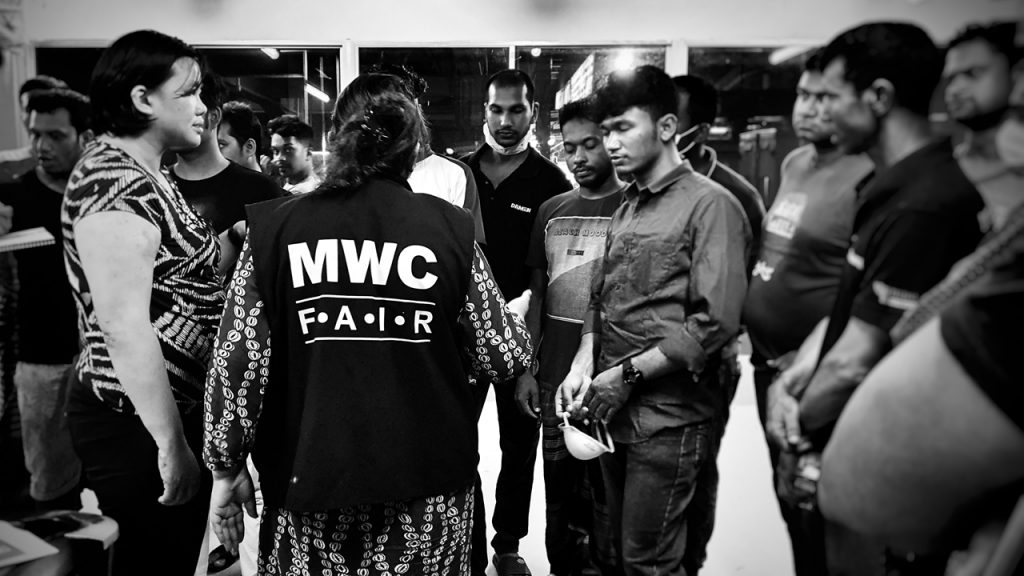
We convened in a recreation room, congregated by some 40 workers, some of whom looked perplexed about having to gather there. It was there where I first met some of the folks from MWC, including MWC Specialist Atiqua Farhana. Originally from Bangladesh, she had previously worked at the Ministry of Manpower (MOM) as a translator; her fluency and understanding of the Bengali culture was essential to the centre’s efforts to communicate with the Bangladeshi migrant workers.
Addressing the room, she communicated with both vigour and authority, informing the workers in Bengali of the efforts the Government has taken to control the outbreak in Singapore. She also informed them that going on strike without having first met proper requirements was illegal, and that refusal to work would result in severe penalties.
One by one, some spoke up nervously, revealing that a strike did not take place earlier that day, but that their supervisors had informed several of them to put their work on hold for a couple of hours and to assemble at their company canteen to further discuss their grievances.
As it turned out, their concerns were not addressed.
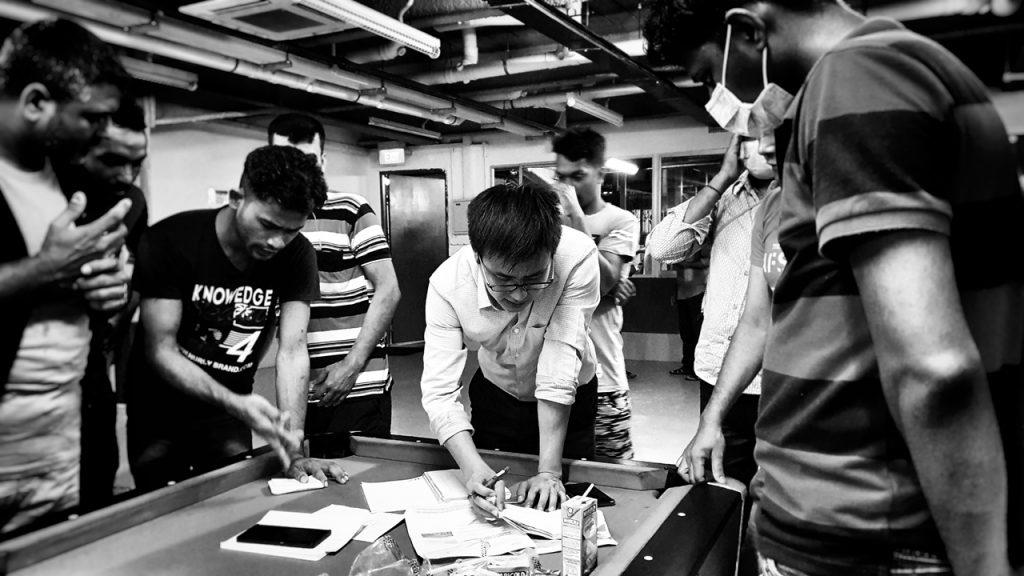
The IROs promptly went into action, gathering details from each and every individual. Atiqua and the MWC staff also assisted, acting as the bridge between the IROs and workers who were not fluent in English.
A total of 30 over workers came forward with salary issues that night.
Before we left, I felt a change in the mood of the room that evening. From a sense of helplessness, the workers were given a glimmer of hope to recover what was rightfully theirs.
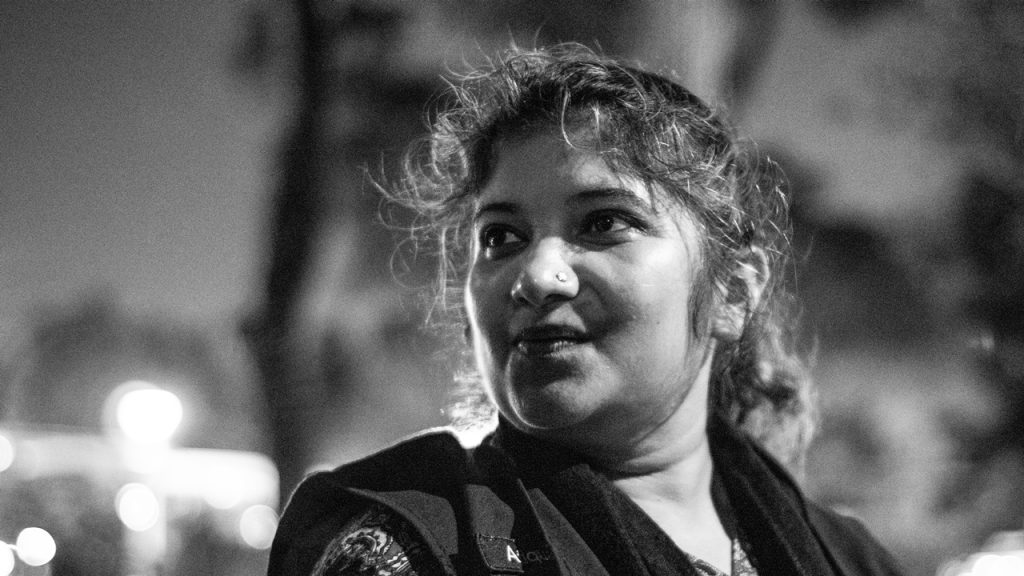
When I asked Atiqua about what motivates her in her role at MWC, she spoke candidly that helping fellow migrant workers was all the reward she needed.
She said: “When the workers call us and thank us for our help, it really keeps me going.
“To be given the opportunity to help my fellow migrant workers here, it is a beautiful thing. And that is what motivates me to do what I do at MWC.”
Addressing Over a 1,000 Shipyard Workers
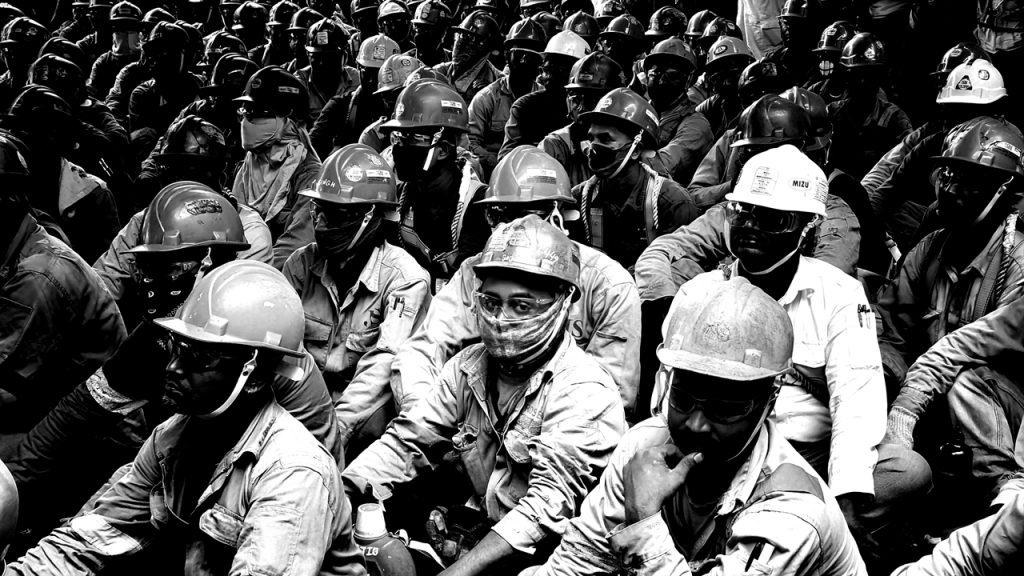
On 20 February 2020, I was there when NTUC Assistant Secretary-General Zainal Sapari went to Dyna-Mac Engineering Services to engage over 1,000 foreign workers to alleviate their concerns over the Covid-19 outbreak.
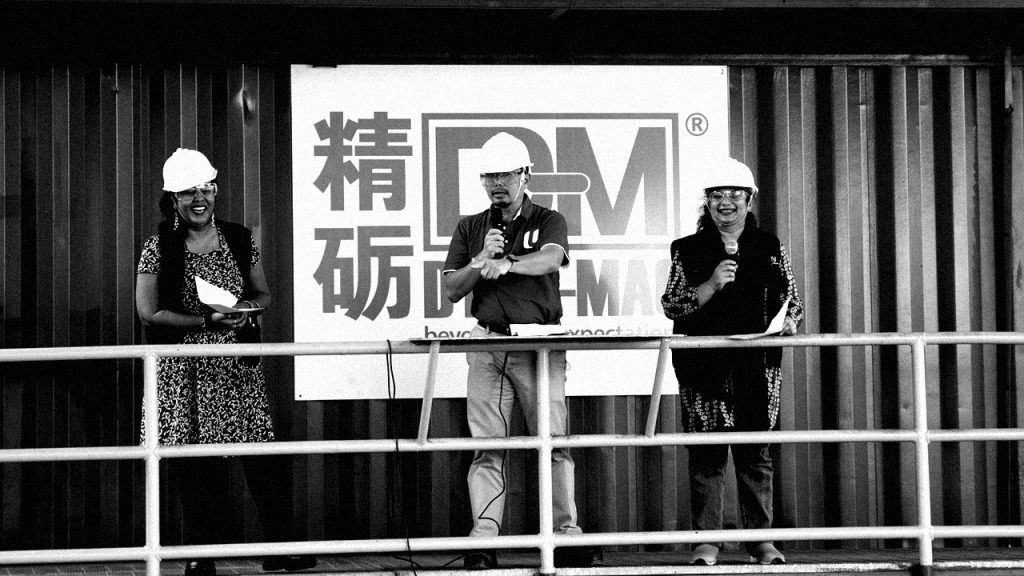
He was accompanied by representatives from the Shipbuilding and Marine Engineering Employees’ Union (SMEEU) and MWC.
Following his address to the workers, the MWC staff helped to translate his message into Bengali and Tamil. Accompanying Atiqua for the Tamil translation was Kavitha Sundram Rajoo, a Senior Specialist at MWC.
Previously from NTUC’s e2i (Employment and Employability Institute), Kavitha joined MWC in 2014. She shared how several workers were thinking of leaving Singapore for their home country because of the outbreak.
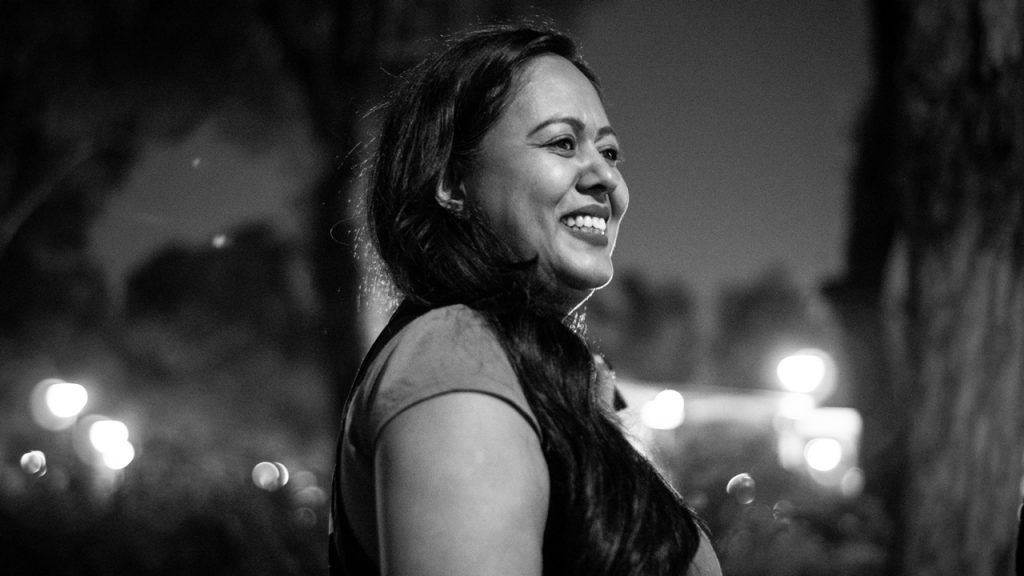
She stated: “Sometimes, workers and their families do share unverified messages amongst themselves about the severity of the virus. And it is because of these messages that workers end up wanting to return home.”
Since the outbreak, she has successfully convinced several workers to stay on instead of making rash decisions on their livelihoods.
“It is what motivates me here in MWC,” she said.
In Search of Workers Without Shelter
On 20 March 2020, I accompanied the MWC team once again on the second night of their two-night operation.
The goal: To search for workers without accommodation due to the Malaysian Movement Control Order (MCO) that came into effect on 18 March 2020.
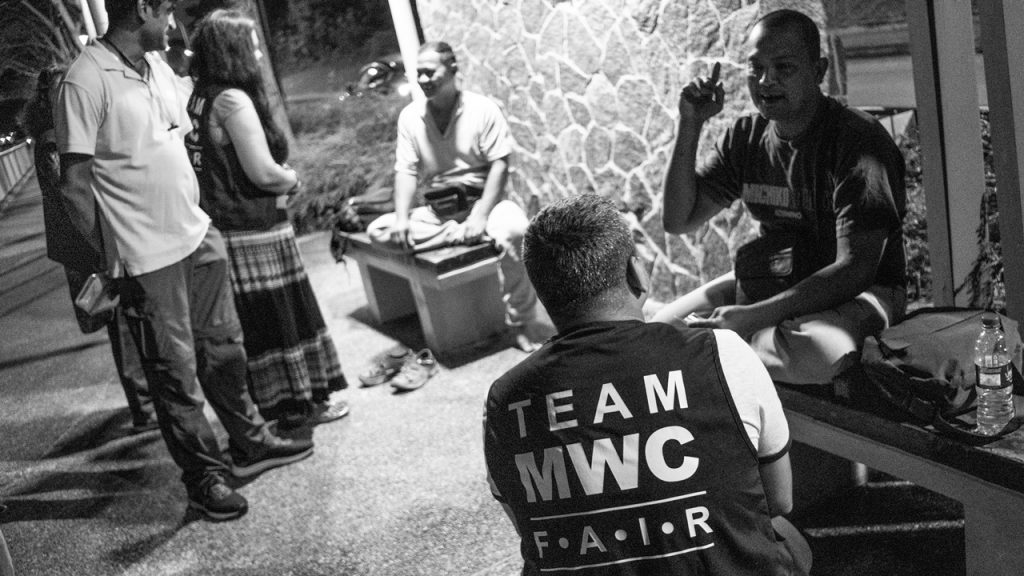
Our search began at the Fullerton area, before heading to the Woodlands Waterfront Park, and ending at the Sembawang Park area.
A group of MWC ambassadors joined us; migrant workers who volunteered their time to help transport the team and scour the streets in search of affected individuals.
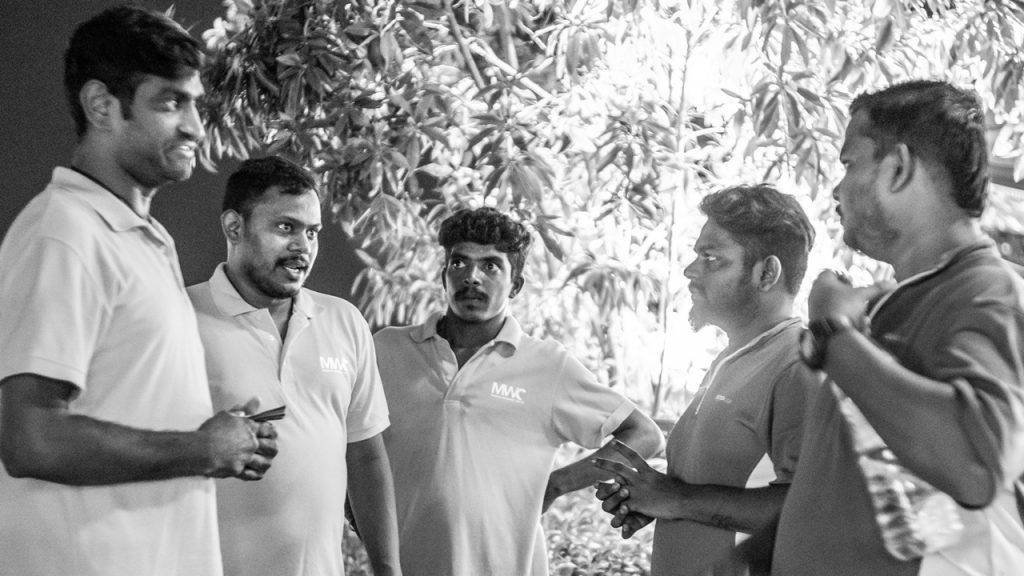
They were a jovial bunch, often poking fun at each other on their search runs. Nevertheless, they were attentive to their surroundings and quick to approach anyone who seemed like they belonged to the migrant worker community.
While the search began at 9.30pm and ended at around 1am, we were glad that no one needed assistance. All the migrant workers engaged had accommodation.
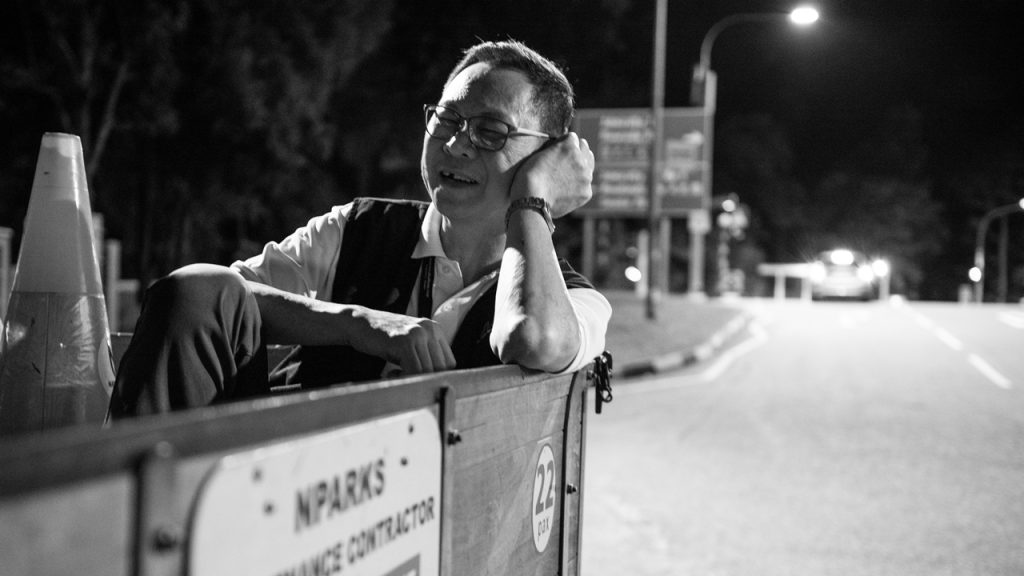
Part-time Customer Service Assistant Francis Heng, who volunteered to help on the night search for workers without accommodation said: “I do feel for the workers [with no accommodation].” He also elaborated that his role was to assist the migrant worker community, and that it was something that he felt very strongly about.
About the Migrant Workers’ Centre
Set up in 2009, MWC is a bipartite initiative of NTUC and the Singapore National Employers’ Federation (SNEF).
The MWC is a non-government organisation whose mission is to champion fair employment practices and the well-being of migrant workers in Singapore.
For more information on MWC, visit their website here.

